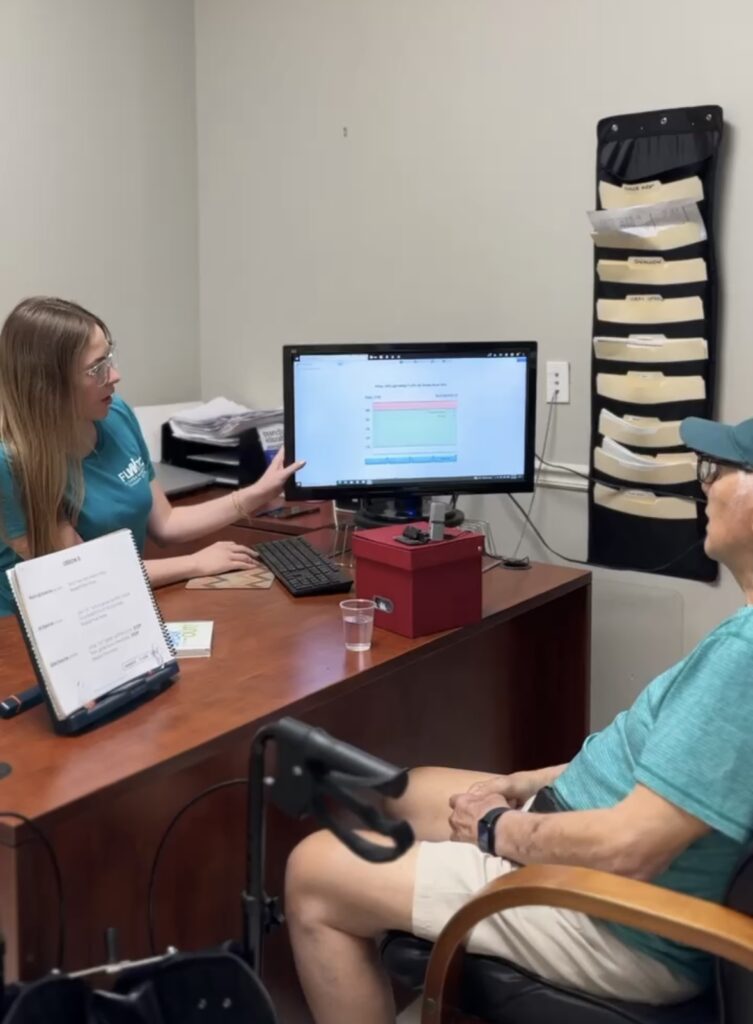Key Takeaways:
- Speech therapy is not just for communication—it also targets cognitive skills like memory, attention, and problem-solving.
- Cognitive-linguistic therapy at FLMTC is designed to support memory, thinking, and overall mental function.
- Our speech therapists help you regain independence in daily tasks by improving cognitive abilities.
Most people think speech therapy is only about improving speech sounds. But at FLMTC, our speech-language pathologists do so much more!
Speech therapy is widely known for helping individuals improve their ability to communicate. However, for many adults, particularly those recovering from a stroke, brain injury, or age-related cognitive decline, speech therapy goes beyond just words. Cognitive-linguistic therapy (CLT) is a key component of our services, targeting mental functions like memory, attention, reasoning, and problem-solving—skills that are essential for daily life.
Here’s how cognitive therapy helps with memory and cognition:
1. Memory Enhancement:
Memory issues are common in aging adults, stroke survivors, or individuals with neurological conditions. Speech therapists at FLMTC use specific techniques to help improve both short-term and long-term memory. This includes memory exercises, strategies for remembering appointments or daily tasks, and tools like memory journals or digital reminders to stay organized.
2. Attention and Focus:
People experiencing cognitive decline often struggle with maintaining attention, making it difficult to follow conversations, focus on tasks, or complete projects. Speech therapists teach strategies to enhance concentration and improve task management, helping patients become more efficient in their daily activities.
3. Executive Function:
Executive function is a set of mental skills that help individuals plan, organize, and execute tasks. Problems with executive function can make it challenging to plan meals, manage finances, or complete work projects. Through cognitive therapy, FLMTC’s speech-language pathologists teach patients strategies to improve organization, decision-making, and planning skills.
4. Problem-Solving:
Cognitive therapy also targets problem-solving, which is critical for managing everyday life. Speech therapists help patients develop logical thinking skills and strategies to evaluate and solve real-life problems more effectively. Whether it’s figuring out a new bus route or how to manage medications, these skills are essential for independence.
5. Rebuilding Confidence:
One of the often-overlooked benefits of cognitive-linguistic therapy is restoring confidence. When someone struggles with memory or thinking, it can be emotionally taxing. Our therapists not only provide tools to improve cognition but also emotional support and confidence-building to help individuals regain their sense of control.
Whether you’re concerned about mild memory loss, recovering from a neurological event, or supporting a loved one with dementia, FLMTC’s speech therapy team is here to help.
Concerned about memory, attention, or thinking skills? Let’s talk.
Book an Initial Evaluation here.







